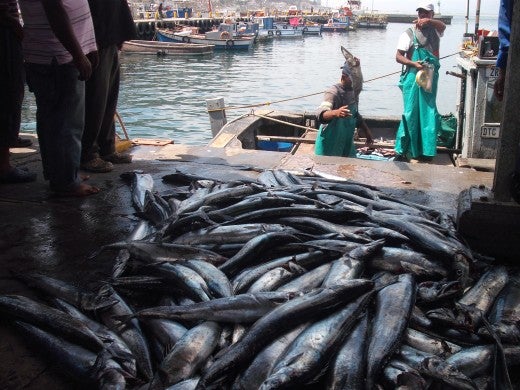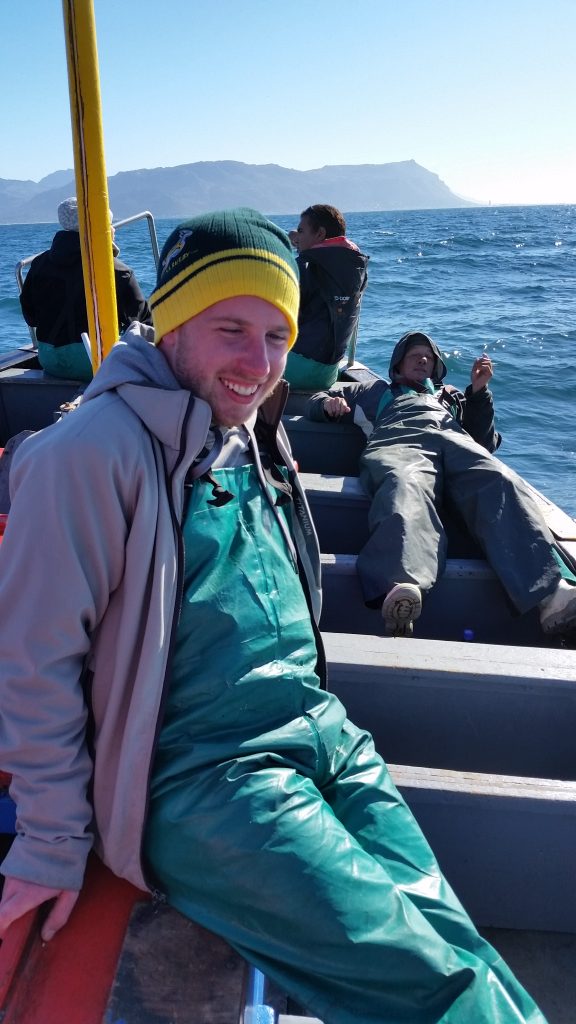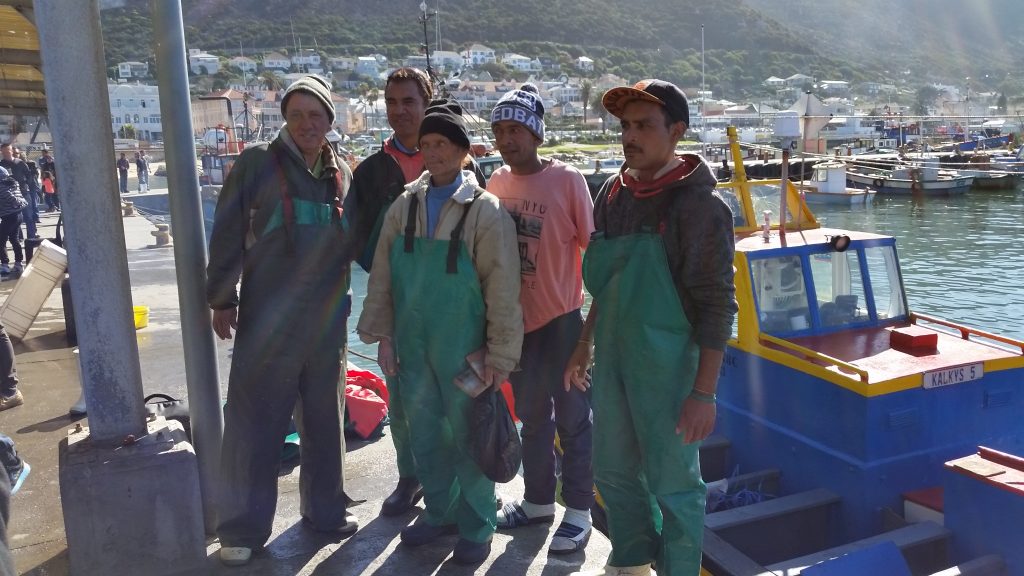Other contemporary cultural traditions include the continued heritage of hand-lining for fish. A typical boat used in the waters of the False Bay today measures approximately twenty-four feet in length and ranges between eight and twelve feet in beam. The crew consists of the captain, the mate, and four or five other fishermen, all dependent upon the navigational and fish-finding skills of the skipper. They speak several languages and self-identify as different cultural group. The primary catch of Kalk Bay is snoek, similar to a barracuda, and extremely profitable in the Cape market. The bait is calamari or pilchards depending on the fish and the fisherman’s choice. A piece of equipment unique to the traditional hand line fisher, is referred to as “the finger thing” (vinger ding in Afrikaans language). It is a small piece of leather fitted around the index finger that protects the fisherman’s from the line. This small accessory aids in gripping the line tightly, to haul the catch in at lightning speed. Keeping fingers well clear of the jagged teeth, the fishermen unhook the slithering fish, break their necks, toss them aboard, and hand cast the lines again. The capital used in a traditional hand line fishing yields bountiful results at extremely low cost in gear.
Other fish popular in the market are Hottentots (which by American standards are saltwater brim) hake, Red Roman or red snapper, and yellow fish, commonly referred to as king fish. The boats are no longer oar-powered, but run on diesel engines and include fish finders and CB radios, which the skippers operate almost exclusively. Besides the small technological additions, the general premise remains those same as past generations in their families. Women and children play an integral role in the process, waiting at the docks to gut and slice up the fish with great efficiency, and display the fresh catch on the outdoor tables in the small port for immediate purchase by tourists, restaurant owners, and traders who sell the fish from the back of their trucks, mostly at established locations around False Bay.
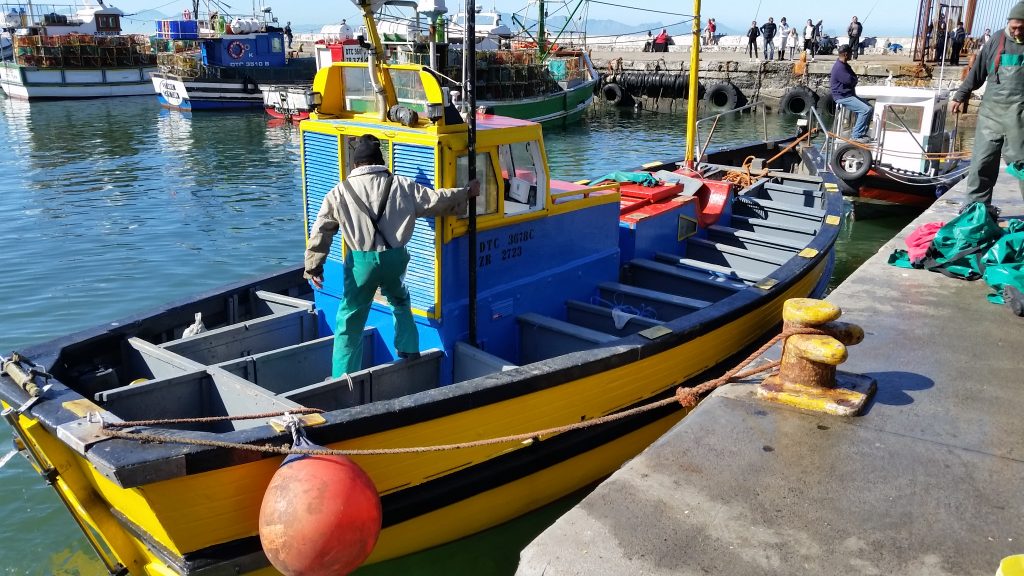
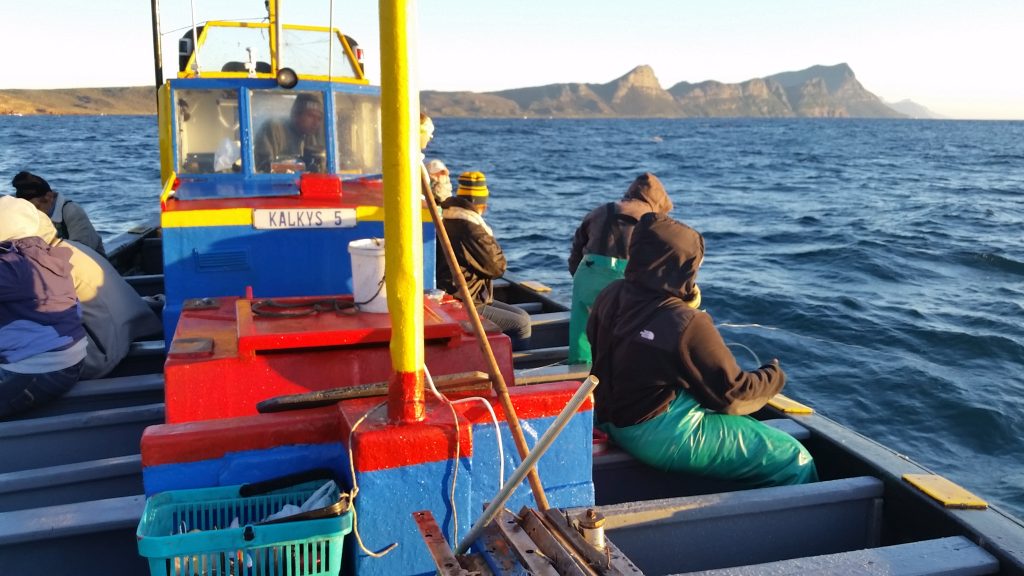
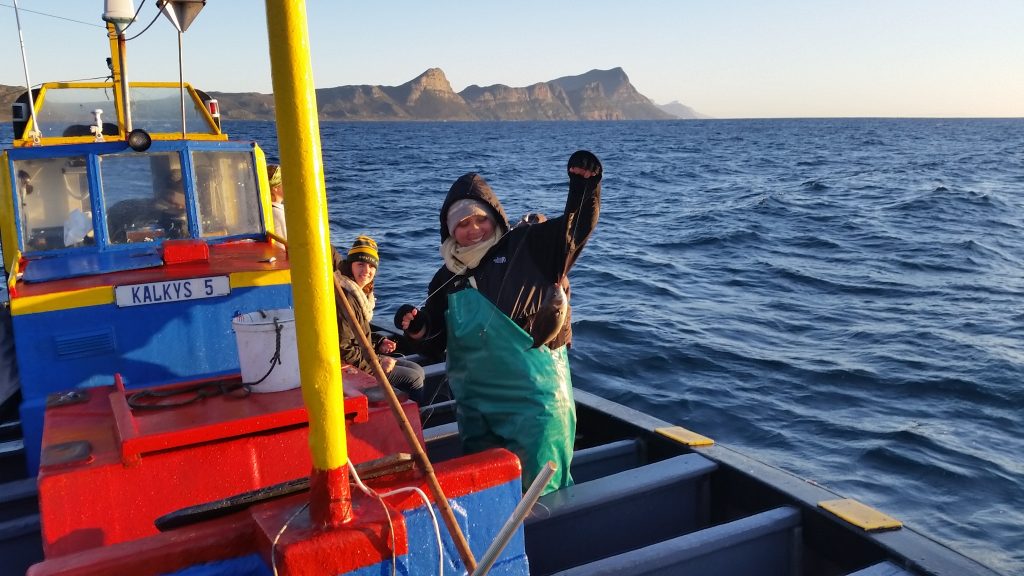
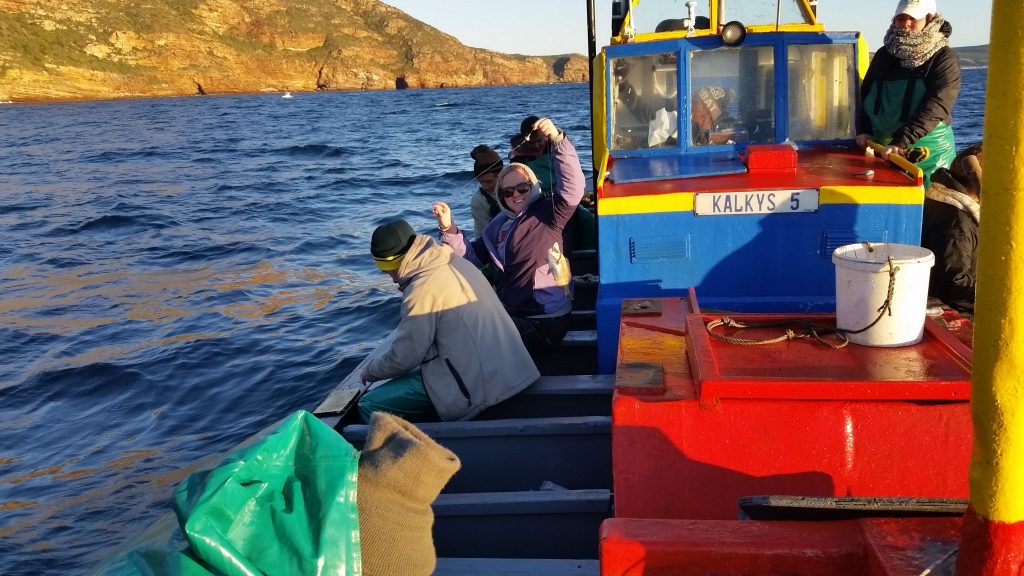

Today, we departed for our fishing adventure at 4 a.m.to go fishing in a small 30-foot open decked boat in Kalk Bay with local fishermen. While observing the seals comfortably sleeping on the edge of the port, we dressed in green oilskins and large white rain boots. With the morning still dark and stars bright, we left the shelter of the harbor around 5:30 a.m. with the 5-man team of experienced fishermen. The voyage to Cape Point took us about an hour and a sonar system helped the captain pinpoint a prime location for catching an abundance of fish.
During the boat ride out to Cape Point, the captain enlightened us about some of the inequalities in the fishing industry. He explained that a group of fishermen went on strike two weeks ago. He talked about how the fishermen in his position barely earn enough to survive. However, the fishing is a trade that has been in most of the men’s family for generations. Four of the men appeared to be over 50 years of age, while the other two where middle aged (30’s). They spoke both English and Afrikaans to each other and seemed to work very well together as a team, while also occasionally teasing one another.
The anchor was lowered and one of the fishermen named Nazeem (one of the younger fishermen) handed me a role of line and tied two hooks to it and a weight that keeps the line down. He then gave me bait that consisted of cut up pieces of a small fish and some squid, which was all prepped at that moment on the boat. Nazeem then threw the line only about seven to eight feet from the boat and released the hold of the line as to let the bait and weight sink lower. He instantly started pulling out fish after fish within no more than thirty minutes he had at least a pile of 20 fish to his side. These included hake, red roman, hottentot and even an octopus. However, our group successfully caught only three fish and one small pajama shark. The crew sold the fish right at the dock where we got off the boat to a woman who actually sells it to the people in the market. She was a member of a fishing family. Our experience of fishing with only a line, weight, and hook helped me better appreciate the authenticity of eating fish in the Kalk Bay caught by the local fishermen.
By Sierra
